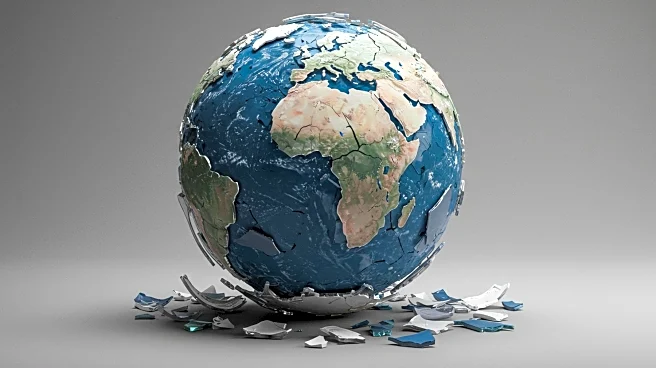What's Happening?
The UN's attempt to finalize a global treaty on plastic pollution has collapsed after years of negotiations. The treaty aimed to establish regulations to limit virgin plastic use and boost recycling, but talks ended without a legally binding agreement. Major food companies like Nestlé, PepsiCo, and Unilever expressed disappointment, as the treaty would have challenged the industry to rethink plastic packaging. Fragmented regulations continue to increase business costs and hinder sustainable investment, highlighting the need for harmonized global policies.
Why It's Important?
The failure to reach a global plastics treaty underscores the challenges of achieving consensus in international environmental policy. Without a unified approach, fragmented regulations continue to increase business costs and hinder sustainable investment. The lack of agreement highlights the need for alternative strategies to address plastic pollution, potentially involving smaller coalitions of countries willing to take decisive action. The outcome of these efforts could influence future negotiations and lead to more effective solutions for environmental issues.
What's Next?
Despite the setback, stakeholders remain committed to pursuing global plastics action. The Intergovernmental Negotiating Committee plans to resume talks at a future date, aiming to overcome the challenges faced in Geneva. In the meantime, individual countries and industries may explore independent initiatives to reduce plastic pollution. The outcome of these efforts could influence future negotiations and lead to more effective solutions for environmental issues.









